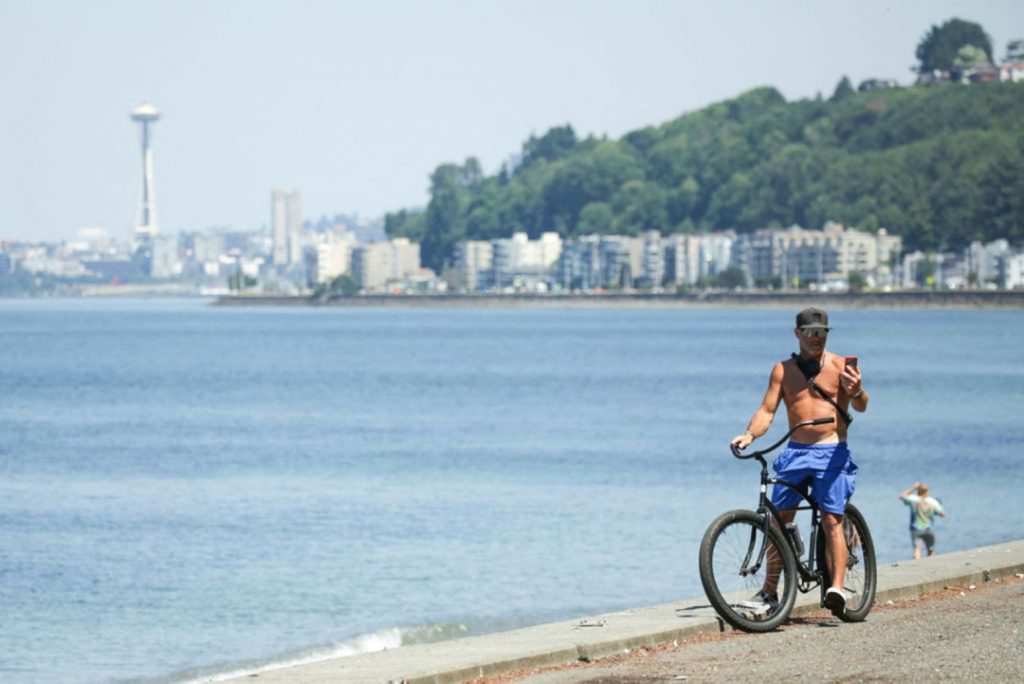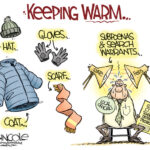PHILADELPHIA — As anyone who has attempted to move around outside in extreme heat can attest, steamy days in the mid-90s are hard on the human body.
In the worst-case scenario, a stretch of hot days and, especially, hot nights can be deadly, particularly for older people who live in ovenlike rowhouses without air-conditioning.
Benjamin Abella, an emergency medicine physician at Penn Medicine, is also worried about roofers and construction workers who are hurrying to finish projects during the city’s housing boom. But anybody who is out for long periods working, gardening, or exercising is at risk for heat-related illness in weather like this.
Here’s what you need to know:
Q. How does the body cope with heat?
A. Our bodies regulate their temperature in extreme heat by sweating. The sweat evaporates, which cools the skin. This makes your heart rate rise as your body sends more blood to the skin to provide the energy for all that extra sweating, said Edgar Chou, an internal medicine physician at Jefferson Health. This can divert blood from other parts of your body, like your brain or gut. It also uses a lot of fluid, which is why it’s important to drink enough. “You lose a lot more water than you realize — and salt,” Abella said. High humidity makes things worse, because sweat won’t evaporate as quickly.
Q. How can I tell symptoms of heat exhaustion or heatstroke?
A. Dehydration is the primary problem in extreme heat. Symptoms progress along a continuum, from heat exhaustion to far more serious heatstroke. The Centers for Disease Control and Prevention show overlap between heat exhaustion and stroke symptoms.
In the early stages, people sweat a lot and feel thirsty. Urine becomes darker in color. With heat exhaustion, people may feel tired, dizzy, and weak, Abella said. Headaches and nausea are also common. “We all have to listen to our bodies carefully,” he said. “The folks who get in trouble push through.”
In heatstroke, the body has lost its fight to keep its temperature down. People may stop sweating and develop fevers of 103 degrees and up. This is an emergency that requires immediate medical attention. It can cause organ damage and death. Chou said he becomes concerned when patients have temperatures over 100 degrees. People with heatstroke may also become confused or pass out. If someone is vomiting and unable to drink, they likely need medical help, Chou said.
Q. Who is most vulnerable?
A. Elderly people are at especially high risk because they tend not to feel thirst the way younger people do. Their bodies also often aren’t as good at regulating temperatures.
Q. Why the elderly react differently to heat
A. People who take diuretics for heart problems or high blood pressure need to be especially careful. Those with diabetes can also have blood-sugar spikes if they become dehydrated, Chou said. People in either group may want to talk with their doctors about medication management if they have to be in the heat.
Richard Hamilton, chief of emergency medicine at Crozer-Chester Medical Center, said people who take certain antihistamines and antipsychotics can also run into trouble because the drugs dry out skin and impair perspiration.
Most emergency visits for heat-related problems, he said, result from a “combination of environment and some kind of medication.” People who feel weak and tired from heat also run into trouble when they decide to take a nap instead of a drink of water, he said.
Q. What should I do if I feel sick?
A. This is pretty simple if you catch your dehydration early. Find someplace cool, or at least shady, rest and drink lots of water, the doctors said. You can try sports drinks, but you don’t have to. Hamilton said you can recover just as well with water, fruit, and salty crackers.
Chou suggests drinking cool, not icy, water. Because blood flow to your intestines may be lower than usual, ice-cold drinks can cause cramping.
If you’re really hot, you can take a cool shower or bath.
If you live in a house without air-conditioning, open windows, Hamilton said. Sitting in front of a fan while keeping yourself damp with a cold washcloth may be helpful. This might not be enough when temperatures and humidity are high, Abella said, especially for the elderly. That’s when it’s helpful to visit friends and family with AC or go to cooling stations. Hamilton said people should check frequently on older relatives.
People who live in hot houses can go from being OK to “fairly compromised” in four or five hours, he said.
If you’ve got heatstroke, someone needs to get you to the emergency department. Doctors there will try to bring your temperature down fast by packing you in ice like a beer in a cooler and giving intravenous fluids. Hamilton said his favorite treatment for heatstroke is to cover patients with a wet sheet. Then the staff put as much ice as they can directly on the patient. Once the patient’s temperature falls to 102 — that’s usually in about an hour — they remove the ice.
— Stacey Burling/The Philadelphia Inquirer via TNS




